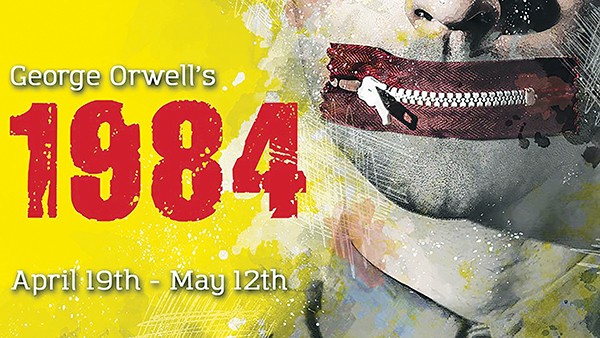“It’s fair to warn all parties,” 1984 director Courtney Oliver says. “If you have a squirmy thing about blood, teeth, fingers, electrocution, children holding guns, or rats, then you may be triggered.” But it’s not the blood or the rats or any specific threat of mortal harm that make George Orwell’s dystopian novel such an effective horror story. Ever prescient, it stalks us like the killer in a slasher film, and has for the better part of the last century.
“What makes 1984 frightening is the idea that a government can have psychological power over its people,” Oliver says. “The relevance to today is in the power of our current technology. How does everyone know where we are? Because we tell them! How do ads know what we like? Because we tell them! The terror is more about how much we’re setting ourselves up.”

2+2=5
Orwell also introduced us to “doublethink,” an example of peer-pressure regulated “newspeak.” It’s the word for holding mutually contradictory beliefs without dissonance. Under doublethink, the citizens of Oceania are inured to perpetual war and shifting alliances. They live in a crumbling, but busy world of what POTUS counselor Kellyanne Conway calls “alternative facts.”
Orwell’s two-way telescreens predict the black mirror of modern digital media, as he writes of a culture that helps make and spread the propaganda that traps it.
Oliver cast veteran actor and university professor Gregory Boller as 1984‘s villain O’Brien. Boller teaches an unusual ethics class using theater to get his students to see the world through the eyes of a villain. Preparing for the role, he found PTSD and suicide levels for military people who conduct torture are high. “It really messes with guys, but O’Brien doesn’t seemed messed with,” Boller says. “He seems mentally healthy. What kind of person could do torture and not suffer ill effects? I looked into sadism and some pretty disturbing literature, actually.”